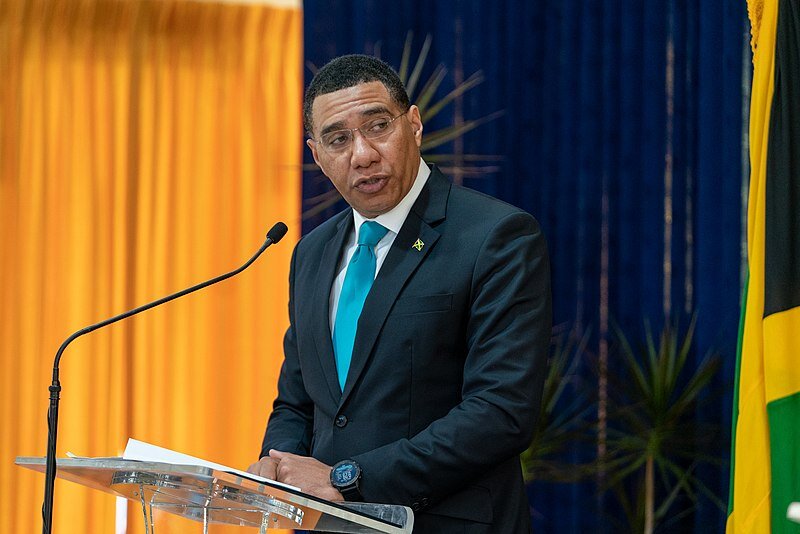Compass Elections: Jamaica Election 101
Jamaica is holding its general election on September 3. 63 members are up for election in the Jamaican House of Representatives; here is what you need to know.
Parties at Play
Jamaica has a firmly entrenched two-party system. The two major parties are the conservative Jamaica Labour Party (JLP) and the progressive People’s National Party (PNP). The PNP is the country’s oldest party, originally founded as a socialist party in 1938 following a period of labor unrest. The JLP was founded four years later by labor leader Alexander Bustamante, who would go on to become Jamaica’s first prime minister after it gained independence from the United Kingdom (technically from the West Indies Federation, a political union of British colonies in the West Indies) in 1962. While the JLP was initially founded as an ideology-less platform for Bustamante, it quickly took on a conservative character. The PNP, following a landslide defeat in 1944, turned more moderate (though still left of center). The rivalry of the two parties has at times descended into political violence, most infamously in the 1980 general election, which saw more than 800 murders. In recent decades, while outright violence has largely disappeared, isolated cases sometimes still pop up prior to elections.
Jamaica’s bicameral parliament consists of the House of Representative, which is directly elected, and the Senate, which is appointed by the Governor-General (nominally representing Queen Elizabeth II, as in most Commonwealth nations). The House of Representatives is made up of 63 seats, with the members elected from single-member constituencies by simple majority. The JLP currently governs with a slim majority under Jamaican Prime Minister Andrew Holness, with 32 seats against the PNP’s 30 (one seat is currently vacant). The 2016 general election, which returned the JLP to office, had a turnout of only 47.7 percent, the lowest in the country’s history (aside from 1983, when the PNP boycotted the election). The PNP’s 2016 defeat could be attributed to then-Prime Minister Portia Simpson-Miller’s embrace of severe austerity policies as a part of an IMF bailout, with the JLP instead promising major tax cuts for lower-income workers as part of its campaign platform of “prosperity for all.”
Jamaican Prime Minister Andrew Holness. (Wikimedia Commons)
Coronavirus Concerns
Holness’ decision to call this year’s general election early (six months before being required by the country’s constitution) has been criticized by many in the opposition camp, who accused Holness of mismanaging the ongoing COVID-19 pandemic. Jamaica had closed its borders in March as the coronavirus spread across the world, which limited cases but damaged the Jamaican tourism industry. The country reopened to tourists in June, but with the arrival of visitors came a rise in coronavirus cases––most of which came from the United States. Holness, who revoked the state of emergency over the coronavirus to call an early election in early August, was forced to suspend his campaign by late August, barely a week after an alarming spike in COVID-19 cases. Jamaica currently has more than 2,600 confirmed cases (more than 1,700 active cases), including the country’s legendary sprinter Usain Bolt, and 24 deaths.
What Next?
Despite the effects of the coronavirus, the JLP is still double-digits ahead of the PNP in polls. Holness is reaping the benefits of his government’s economic successes: lower debts, foreign investment in infrastructure projects, lower unemployment, and inflation-targeting (even though the opposition leader and former Finance Minister Peter Phillips can also claim some credit). Therefore, the voters are expected to give the JLP a new mandate with a larger majority in the House of Representatives. Combating COVID-19 while mitigating the economic impact would likely be the immediate concern of the Holness government following the election. Steering the Caribbean island through its most severe economic downturn will be a tremendously difficult job, and given Holness’s shaky record handling the second wave of infections, he may not be entirely up to the task.

